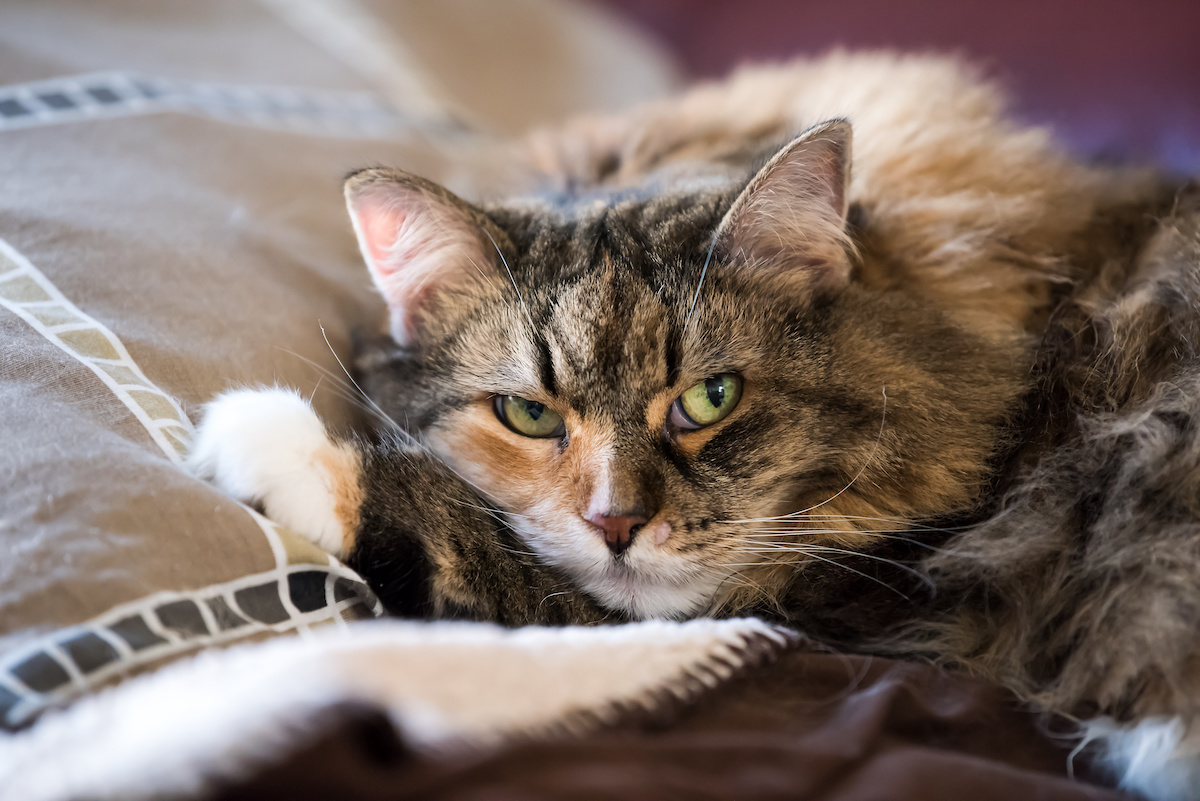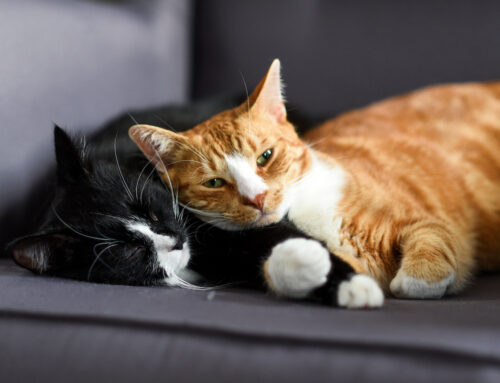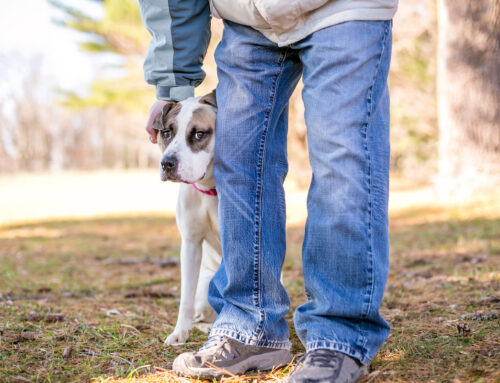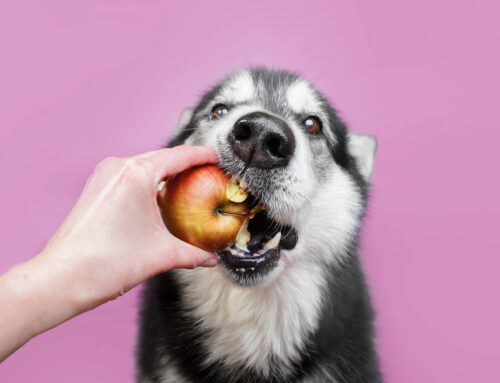Look into the eyes of your cat or dog and you might see fear, anxiety, or stress. The truth is that pets are sensitive to their environment. They pick up on subtle cues that we may not always see. When your pet is stressed, there are several signs you need to keep in mind.
Meanwhile, in stressful situations, pets respond similarly to humans. They produce the stress hormone cortisol in response to an uncomfortable stimulus. In short, pets feel stress just like humans.
Some pets are more susceptible than others when it comes to stress. Those who are shy or have a timid nature don’t take well to change. These pets may become nervous about new visitors or experiencing something new for the first time. Take note if your pet exhibits any of these common signs of stress:
Your Pet is Freezing in Place or Pacing
Freezing or pacing when you have visitors or experience a change in your routine is a tell-tale sign that your pet is stressed. Some pets will freeze in place as a defense mechanism. It’s a similar concept to the fight, flight or freeze reaction in humans.
Furthermore, they may have a hard time relaxing and will be unable to sit and enjoy your company. Other pets may pace, unable to sit still. They may have a hard time containing their energy.
If your pet freezes or paces when you have guests over, or when there’s a change in your routine, they’re likely under stress. You can reduce this behavior by giving your pet extra attention when they need it. Give your pet plenty of love and reassurance before the company arrives.
Excessive Shaking or Shivering
If your pet is shaking or shivering when they shouldn’t be cold, this is a sign of stress. Some pets may shake when they’re nervous or unbalanced.
Other pets may shiver due to low blood sugar. If your pet is shaking or shivering, check their blood sugar level. Low blood sugar levels can cause shivering, especially in pets who are hypoglycemic. If your pet’s blood sugar level is normal, then stress is a viable explanation.
Excessive shaking or shivering can be a symptom of all types of stress. If your pet is exhibiting this behavior, give them extra attention and care. You can help your pet relax by giving them a warm, quiet space to chill out until they feel better.
Hiding or Escape Behavior
Some pets, like some humans, prefer to avoid conflict. If your cat or dog is low on confidence, they might find a quiet hiding place to wait out the storm.
Hiding or escaping from the room when there are visitors or with a change in routine is a sign of stress. If you notice your pet is choosing to hide or run away, check their environment for anything that may be causing them to feel anxious. Do you hear a loud sound you can turn off? Is there a person that may be too overwhelming for your pet?
This behavior is a sign of a timid pet who doesn’t feel comfortable in their environment. Give your pet time to relax when they’re hiding. Once they feel more comfortable, they will come out of hiding.
Growling or Showing Teeth
Some pets will try to scare away a threat and growl or show their teeth. If your cat or dog is typically playful or docile and they suddenly show their teeth, they may be stressed. If your pet is typically friendly and they are aggressive, they may be trying to scare away a threat.

Increase in Drooling and Salivation
Some pets may drool more than usual when they are under stress. Stress can cause a release of the hormone, norepinephrine, which can make pets salivate more.
If your pet is normally calm and collected, but they start drooling when there is a change in routine or visitors arrive, this is a sign that your pet is stressed.
Urine Marking and Spraying
Some cats may spray in their environment, marking their territory with urine. Dogs are more likely to urinate in the house when they are stressed. However, some cats will urine mark, too.
How to Alleviate Stress in Pets
If your pet is exhibiting any of the signs above, they may be stressed. Take note of your pet’s behavior and help them recover from a stressful situation. The good news is that there are several ways to help when your pet is stressed, such as:
Encouraging Exercise
Exercise can help with stress in dogs and cats. Stress is a feeling of being under too much pressure, which can lead to anxiety or depression. When a dog or cat is under stress, it’s more likely to engage in undesirable behaviors, like pacing or hiding.
Exercise can help relieve some of the stress that dogs and cats may be experiencing. Exercising also releases natural chemicals in your pet’s brain that help to reduce stress.
For example, playing fetch with your dog or taking a walk with your cat are both great ways to help relieve stress in your pet. In addition to exercise, making sure your pet has enough social interaction is also important.
Social interactions are important for mental health, and they can also benefit your pet physically by improving their mood.
Offer Healthy Foods
Stress is a huge issue for many pets, especially those who live in stressful environments. Living with constant noise, traffic, and other loud noises can be detrimental to your pet’s health.
The constant stress that comes from living in a noisy environment can lead to anxiety and even depression. This can cause a range of health problems such as digestive issues, anxiety, and muscle tension. To help address this, it is important to feed your pet a healthy diet to help with stress levels.
Feeding your pet a healthy diet will reduce his or her levels of stress hormones and improve their overall health. A healthy diet should include plenty of protein, vitamins, and minerals. You’ll want to ensure your pet is getting the right diet for their age group. If you need help selecting the right food for your dog or cat, please contact us at Animal Care Center.
Pet is Stressed: Keep Your Home Quiet and Comfortable
Since many of your cat’s stress-related health issues are a direct result of living in an overstimulating environment, it’s important to provide a quiet, comfortable home for your feline. Keeping your house quiet and free from noise, excessive smells and people, will help keep your cat from feeling stressed out. This can also alleviate some of the health problems that can arise as a result.
One way to do this is to eliminate all sources of excess noise in the home. Try to have children use inside voices and do not run around the house.
You’ll also want to keep your dog and cat in a regular routine at home. Make sure they have a place to rest when they want to be alone.
Worried that Your Pet is Stressed? Contact Animal Care Center for Help
If you notice changes in your pet’s behavior or they exhibit any of the signs above, they may be stressed. Take note of your pet’s behavior and help them recover from a stressful situation. As a recap, these signs include:
- If your pet is hiding or escaping, check their environment for anything that may be causing them stress.
- Is there a loud sound you can turn off? Is there a person that may be too overwhelming for your pet? If your pet is showing signs of aggression, give them space.
- Give them time to relax and re-connect with their normal, happy state.
- If your pet is showing signs of excessive shivering, low blood sugar, or excessive drooling, give them food or take them to the vet.
- When your pet is marking territory with urine, clean up the mess with a diluted vinegar solution.
If your pet is stressed but you can’t pinpoint the cause, please call us Animal Care Center. We can help you rule out any medical issues that may be causing stress in your pet’s life.






